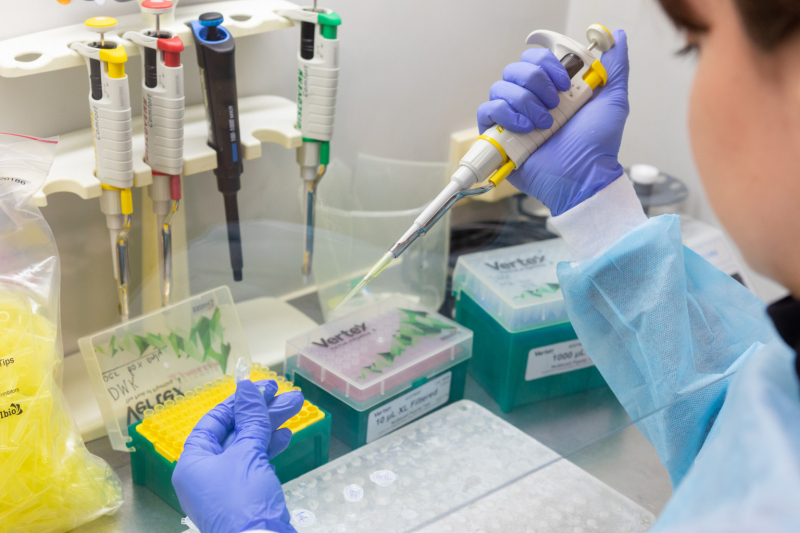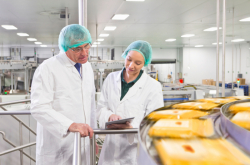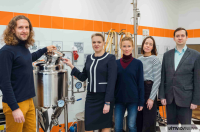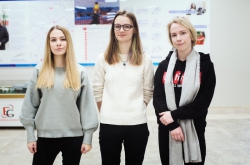Lyudmila Nadtochiy, associate professor at ITMO University’s Faculty of Biotechnologies and researcher at the International Research Center "Biotechnologies of the Third Millennium"
The Ecology & Biotechnology session brought together scientists from different countries. Participants of the conference shared their experience in biotechnologies, bioinformatics, and sustainable development. The event was held as part of Multidisciplinary Collaboration for Precise Food Science Development, a joint project with the Swedish University of Agricultural Science (SLU) that is itself a part of the Academic Collaboration in the Baltic Sea Region program.
Today, food science is based on our knowledge of a spectrum of engineering, biological, and physical processes and the understanding of how we can use them to process raw materials and food products. In many of these processes, bioinformatics plays a key role and allows us to achieve precise research results. In modern science, the multidisciplinary approach allows us to fight global issues such as food deficit and the reduction in food quality. At the conclusion of the project we’re working on with SLU, we’ll identify the scientific fields that have the biggest potential for future collaborations. They will be the foundation for multifaceted joint research between partners from Sweden and Russia.
Lyudmila Nadtochiy. Photo by Dmitry Grigoryev / ITMO.NEWS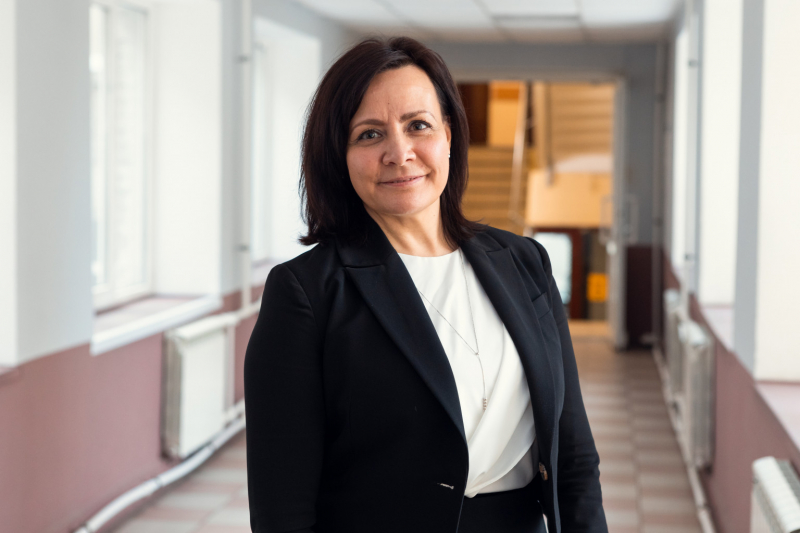
The International Research Center "Biotechnologies of the Third Millennium" is also working on a study that focuses on the production of grapes in the context of climate change (ProGriCC). This initiative has already received support from our colleagues at SLU and Tbilisi State University, while the Swedish Institute has provided funding. Climate change is one of the most serious issues for the global community. Thanks to international collaboration, specialists in biotech, bioinformatics, and closed-cycle economy, as well as young scientists – Master’s and PhD students of three universities – will exchange their knowledge and experience, as well as develop joint strategies that would facilitate the sustainability of winemaking in the conditions of climate change. Project applications were drafted with the assistance of ITMO’s International Programs and Projects Office; the ProGriCC project was also assisted by the staff of ITMO University’s European Liaison Office in Brussels.
In recent years, a great deal of trends have emerged in biotech and food science. A research group at our center is currently working on finding and extracting biologically active substances that would have a prophylactic effect against various non-infectious diseases, particularly neurodegenerative ones, such as Alzheimer’s. Research on this subject is relevant on a global scale. Our tasks are to track the trends, look for potential sources of biologically active substances, find effective methods of their extraction and preservation, and study the prospects of their large-scale use as part of daily nutrition rations.
On this matter, too, we’re collaborating with specialists from SLU. The goal of our work is to acquire reliable data from research at the intersection of biotech, bioinformatics, and food science. This will help us get better at finding biologically active substances of natural origin and use them to prevent the development of non-infectious diseases.
Vladimir Vietoris, associate professor at the Slovak University of Agriculture
Vladimir Vietoris. Photo by Dmitry Grigoryev / ITMO.NEWS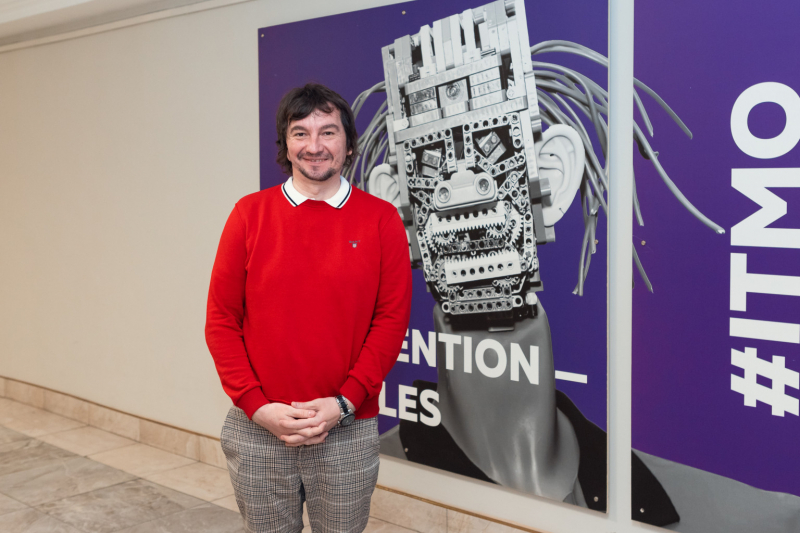
My talk at the conference was about the role of sensory analysis in quality assessment of products in the context of sustainable development. In the future, we might face the deterioration of climate conditions, population growth, and irrational use of natural resources. All this will lead to a deficit of products and reduction in biodiversity. We can change this situation if we switch to organic products and “clean-label” products made of natural ingredients, replace natural meat with the artificial or 3D-printed kind, and start using insects in food production, such as in the case of cricket flour. But some people might have difficulties accepting innovative products and others – experience food neophobia (a fear of new foods).
We’re trying to solve these issues with the help of sensory analysis – a scientific approach in which consumers use their senses (smell, touch, vision, hearing, and tactile feel) to analyze products and evaluate them. Then, researchers assess the collected data. There are many different ways to conduct such studies: through focus groups and interviews or by using biometry to assess the subjects’ emotions while they eat. As a result, we can understand how people perceive innovative products and technologies, identify the contributing factors, and work on making these products better-received. Sensory analysis also helps improve the quality and increase the shelf life of foods and promote a more sustainable diet that includes less meat and dairy and more vegetarian and vegan products of organic and local origin.
Credit: h gruber / wordpress.com / CC BY 2.0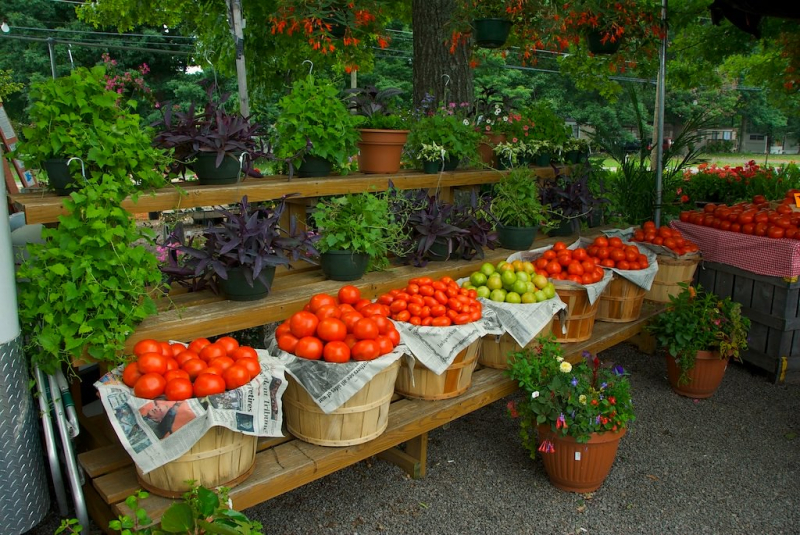
Right now, I’m working on a project of the Slovak Academy of Sciences that concerns the development of food for the elderly. Human life expectancy is increasing and in 20 years there will be more senior citizens. With age, people have more trouble chewing their food, so one of the possible options for them would be gels and semi-liquids, such as the foods used by athletes during Tour de France. Our collaboration with Lyudmila Nadtochiy and Denis Baranenko (the head of ITMO's International Research Center "Biotechnologies of the Third Millennium'' – Ed.) is beneficial in this regard, as they are developing nanocapsules that could become a part of our gels. But there are many other relevant research subjects, such as the use of plant protein as a replacement for artificial meat – or the development of personalized diets based on genetic analysis.
Olga Kriger, professor at the Institute of Living Systems at the Immanuel Kant Baltic Federal University
Olga Kriger. Photo by Dmitry Grigoryev / ITMO.NEWS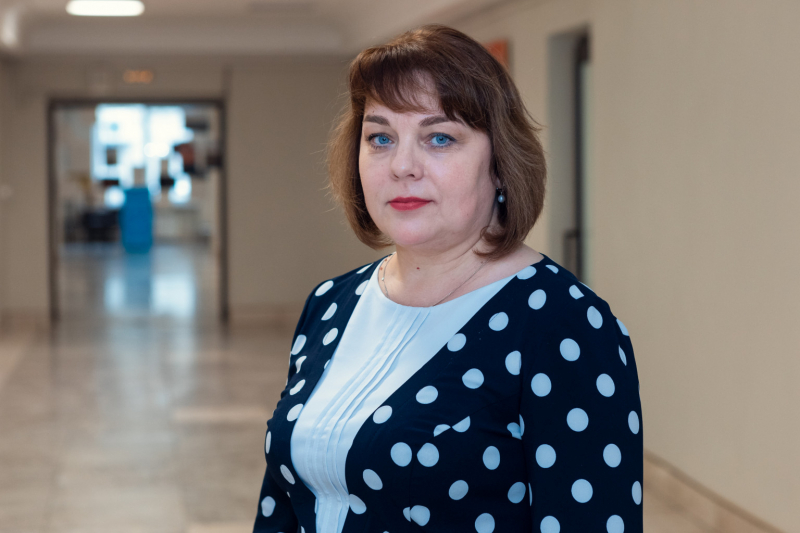
Our institute works on bioengineering research in the fields of industrial, ecological, and agricultural biotechnologies, as well as bioenergetics. Right now, we’re working on making biofuel, particularly bioethanol, out of perennial plants. Unlike oil and gas, these are renewable sources. Besides, the Baltic region is rich in algae species that only grow here. We can use cell technologies to extract biologically active compounds and use them as ingredients in the production of medicine and functional and specialized foods, such as nutrition for the elderly. In my view, this is a quite relevant field of FoodTech these days.
Erik Bongcam-Rudloff, professor of bioinformatics at the Swedish University of Agricultural Sciences
Erik Bongcam-Rudloff. Photo courtesy of the subject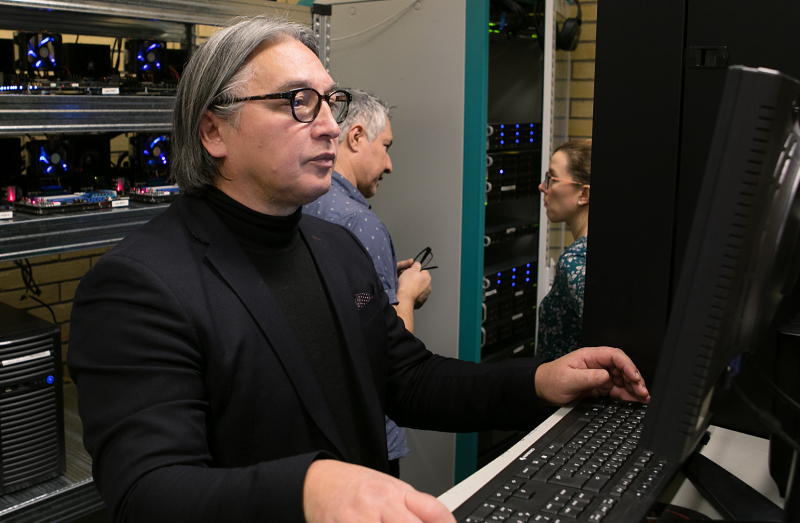
At my university, my students and I conduct research on various topics related to bioinformatics. One of my students is looking at cows in Sweden, Ethiopia, South Africa, and Kenya in order to see if the food regimen in different geographical locations affects the microbiota of cattle and how that, in turn, affects their health, resistance to illnesses, and productivity. Another study is about the genome of nematodes – roundworms that cause filariasis in cows. This illness is similar to lymphatic filariasis in humans (also known as elephantiasis). It disrupts the functioning of the lymphatic system and causes abnormal hypertrophy of various body parts. We want to study its genome and identify targets for medical drugs. We’re also studying the manioc root (or cassava), which is grown and consumed in South America, Africa, and Asia. The thing is, when this plant contracts a mosaic virus, its genome is changed in a way that makes the subsequent generations immune to the virus.
At the conference, I spoke about biotechnologies and next-generation food products. Our planet’s population is constantly growing; in order to feed it, we cut down forests and convert more land for agriculture, which harms nature. Take the avocado – a healthy product that grows in the tropics. But nowadays it’s being grown in other climate zones, indirectly causing the creation of deserts because the trees require a massive amount of water. In my talk, I pointed out the need to develop new types of products that contain more nutritious elements and cost less to produce. At the same time, we should avoid using conservation agents, which kill off microbial life in our body and cause an unhealthy imbalance in our microbiota.
Mosaic virus in a cucumber plant. Credit: Wikipedia Commons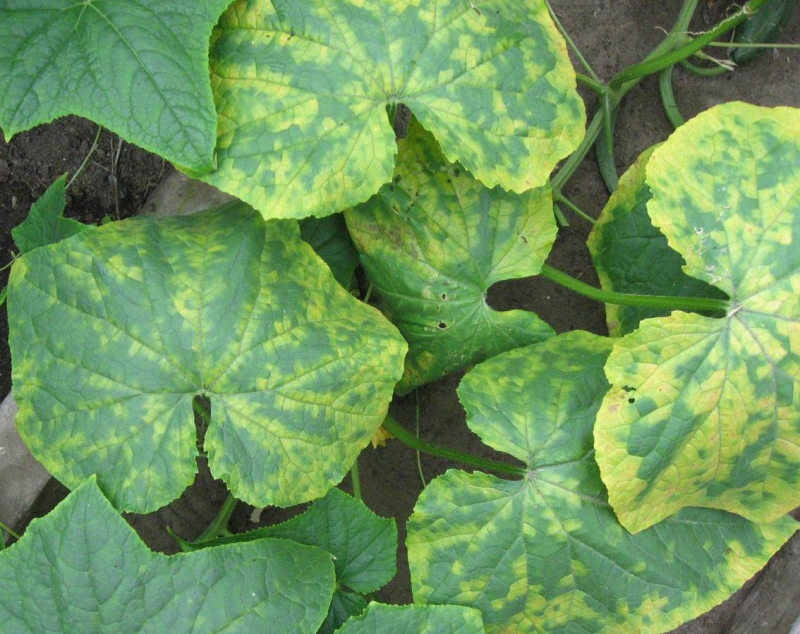
We also need to study the genetics and microbiota of different peoples before pushing foods from a specific geographical region onto everyone. For instance, people of the Arctic, who ate a lot of fish rich in Omega-3, didn’t suffer from cardiovascular disease – so scientists decided that everyone else should take Omega-3, too. That might be the case, but microbiome balance must be taken into account, too. We need to collect more data and analyze the microbiota of people who consume foods that are and aren’t standard to their area.
I’m sure that there are many more problems that need to be solved, such as the task of feeding our growing population or making water cleaner. That’s why we need to move away from the idea of monocultures and promote the diversity of products in every country, as well as adapt different types of products to each nation’s geographical conditions so that everyone could grow things locally.
Anastasia Pavlova, associate professor at the Faculty of Energy and Ecotechnology
Anastasia Pavlova. Photo by Dmitry Grigoryev / ITMO.NEWS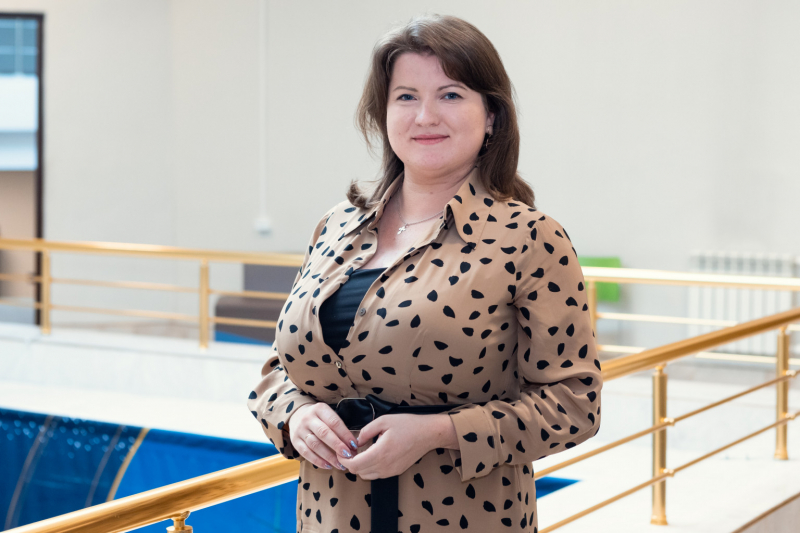
At the conference, I presented the results of my study Functional nutrition for active and healthy longevity (or just FulLife). We’re working on this project with Master’s and PhD students of the Faculty of Energy and Ecotechnology. Over the course of two years, they have been working on recipes for new products that can help prevent non-infectious diseases such as diabetes, cardiovascular disease, and others. At the conference, we presented our own product, a protein-rich free cookie.
At the panel session, we heard some fascinating reports about this year’s trends in nutrition, semi-prepared fish products with a balanced lipid-protein content for the elderly, and the prospects of using dairy protein concentrate in bread products.
I’m glad that the conference also covered the environmental aspects of food development. It’s important to assess the lifecycle of new products and technologies. There is a lot of potential for research when it comes to the closed-cycle economy. The focus on resource-saving and waste reduction in the development of new products confirms a trend towards sustainability in the food industry.
The conference also featured a roundtable discussion titled Prospects of Collaboration in Higher Education, which featured partners from Russia and Europe. Natalia Shulgina, the program director of the Potanin Foundation, spoke of the opportunities for participation in various competitions and grants for scientists, teachers, and students from Russia. Lyudmila Nadtochiy, a winner of one of the foundation's competitions, shared her experience and discussed the upcoming Research Summer Camp in Biotechnology at ITMO. Olga Kriger described her successful experience with a project that involved numerous partners and was supported by the Potanin Foundation. In addition, the participants of the roundtable discussion discussed the prospects of future collaborations and joint work in the field of life sciences.
